By “difficult” we denominate players that require additional attention from us. Such players do not necessarily cause problems intentionally. In any case, good customer service and dealing with problems is part of our work in tournaments. We shall dedicate this article to discusing the most widespread categories of these “difficult players”, and elaborate some recommendations conerning our communication with them.
Newbius Vulgaris, or “It’s my first tournament ever”
Quite often, the reason for a rule breach is complete ignorance thereof. When a novice leaves your tournament without notifying you about his wish to terminate his participation, trades cards and adds newly acquired ones into his limited deck, it doesn’t necessarily mean he does it only to torment you or because he is a shameless cheater.
Alexey: “In fact, when I played my very first tournament in 1999 or around that time, I had a sideboard of 35 cards and banned Strip Mines in my deck”.
Irina: “In my first ever tournament, after losing the first round and getting a bye in the second, I was utmost certain that it meant “Goodbye, loser”.
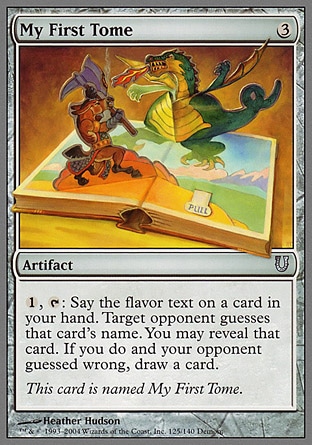
How do we deal with newbies so that both the integrity of the tournament is preserved and the newbie’s interest in playing “all these hardcore tournaments” doesn’t vaporize?
- Spare the newbie some time. The more of your attention he gets, the more peaceful and positive will his reaction to your ruling be. If you see that the novice doesn’t quite understand his punishment, and the number of “Judge!” yells keeps increasing (and adding 5–7 minutes to a game just because of a missed trigger is not quite good, after all), ask him to reach you at the judge station after he finishes his current match in order to hear a proper explanation on what’s what.
- Be accurate in your expressions down to the limit. He is already feeling stressed in “all these hardcore tournaments”. A judge’s confident, calm and not extremely rigorous attitude may demonstrate him that “everything is in due order” and there is nothing to worry about, you will save him from both his evil unsporting opponents and his own mistakes.
- Answer every, even the silliest question, without displaying any signs of boredom or superiority on your face, even if a player inquires whether a full-sized mountain can generate red mana. What’s obvious to you is sometimes absolutely incredible to players, especially to beginners.
Fixed seat or “I coudn't miss this tournament”
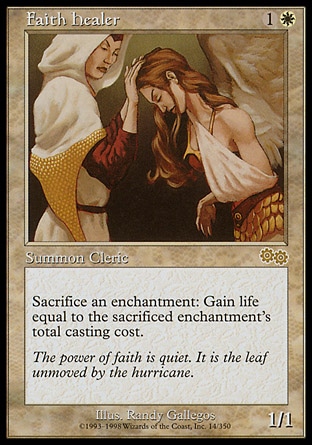
A player who arrived to the tournament on crutches or in a wheelchair will need a fixed seat. If the player is seated at the same place throughout the event he won’t need to look at pairings.
- Choose a table that is easy to access.
- DCI Reporter is very comfortable for this, but unfortunately, it is used only in major events.
It has this special function:- Open EDIT —› FIXED SEATING (Ctrl+F)
- Select the player by double-clicking the name.
- Select the number of table you want to seat him at.
- Press Enter and click Close.
- Wizards Event Reporter and Wizards Eventlink don’t have such function, so you will have to do a lot of clumsy stuff.
Connoisseur, or “Orc clever, orc ate book”
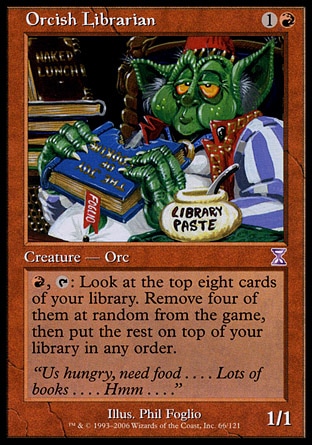
Some players are convinced that playing namely that deck archetype, 6 Grand Prix in anamnesis and the awe-filled “Mister” in front of their name automatically means that they are right in every imaginable situation, since they have perceived the essence of the rules through divine providence. If 2+2 gets us 4 and him 5, you are the one at wrong.
A special subgroup of this type of experts are some of our colleagues, who, never intending any harm, attempt to issue your ruling for you.
— I have drawn an extra card here. It’s a game loss, isn’t it? — the player sighs and scoops up his cards.
- Undoubtedly, the best way to deal with connoisseurs is to know the rules better and to know how to apply them. Never waste an opportunity to improve yourself.
- Confidence is very drastic here, but spare every effort to make sure the player doesn’t treat it as arrogance.
- Compliment the connoisseur for his expert knowledge. That will disarm him.
- Remind him that only a judge may issue rulings.
- Do not argue with the connoisseur. Issue your ruling and:
- if you are the head judge, inform the player that your ruling is ultimate and isn’t subject to discussion. If the player wishes to know more about this decision, as in the case with a novice, express your willingness to comment it after the match, after the tournament, etc., i.e. not at the cost of the tournament’s integrity.
- if you are the floor judge, remind the player about his right to appeal.
Troll
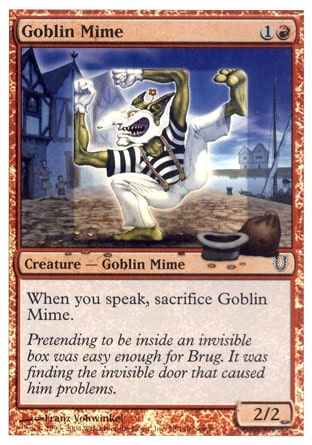
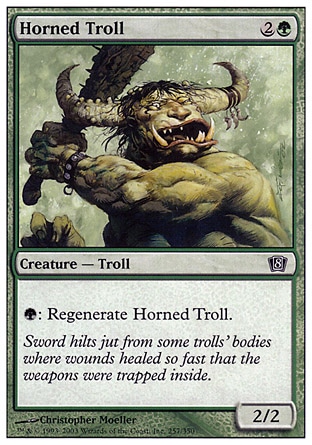
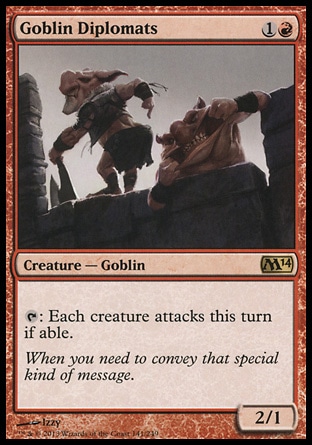
What do you do?
- Act professionally. Never give in to provocation.
- Remind the player about unsporting conduct.
- If the player breaks out of limits, punish him.
Alcomage or “What shall we do with the drunken sailor”
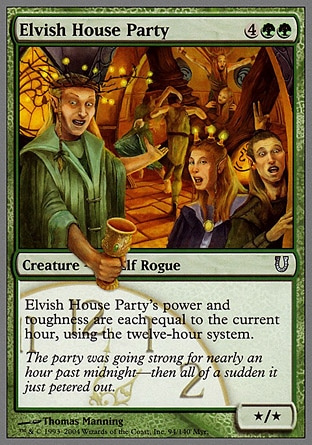
- Pay attention. If a player cannot perform gameplay actions in due time, speds saliva or exhales ominous aromas at players, don’t wait till it becomes a problem, take measure:
- if the TO doesn’t prohibit alcohol in his tournament, talk to the player.
- if consuming alcohol is prohibited, talk to the TO.
- a flat prohibtion of alcohol must be announced from start of the tournament.
- When issuing rulings (including seeing a player off), remember the influence of alcohol on the human body. In general, it is a depressant decreasing cognitive functions. Do not be embarrassed to repeat and make certain you have been heard and understood. Do not manifest aggression nor anything that may be interpreted as such.
- If your intolerance for alcohol boosts over the sky, ask for help from another judge or the Tournament Organizer.
- If the alcomage is aggressive, you know what to do. If the alcomage falls asleep, you know what to do. I am afraid, in both of these cases your reaction is somewhat late.
Emo
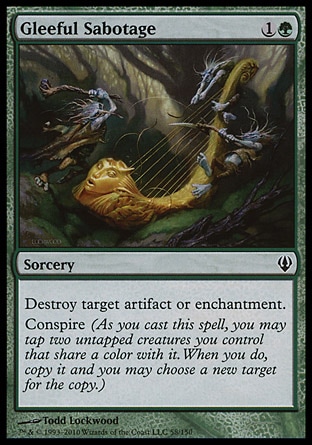
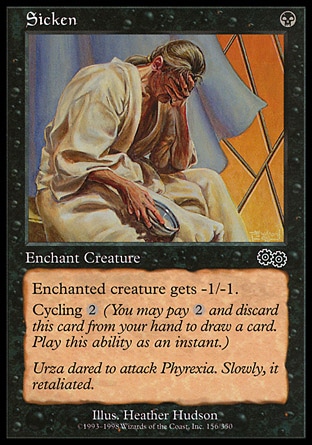
Have you ever seen me register decks in sealed? You have not? Well, it’s a typical “I hate you all” portrait. Next to me you could sometimes find Olga gushing over “Check out the card I have just unsealed!”. The two of us obviously belong to the category of emotional players, or simply “Emo” in our classification.
Spice this situation up by imagining a Johnny “Whiny” White who constantly goes over “I am always the unlucky one and my opponents don’t know how to play”.
The above examples are quite harmless. You may show compassion to the player or congratulate them on their success, and then ask them to correct their behaviour and to rejoice/bemoan silently, because there are other people around who may be disturbed with the emotional gush.
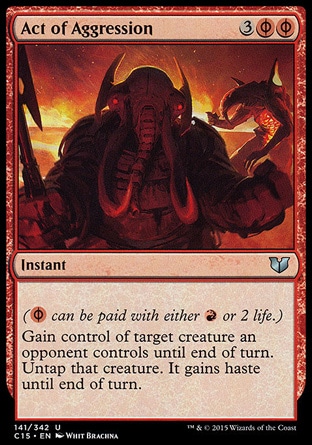
The dark side of an “emo” is considerably harder to fight. As the grade of dissatisfaction keeps growing, the main thing is not to let the situtation develop into something extreme. Even an increasing tone must be a signal of action for you, not to mention scattering cards or turning tables over. In that unfortunate case you would have to disqualify the player.
- Keep calm. You are professional — you can deal with the situation.
- Use the body language. Keep yourself straight and open. Breathe deep and calm. Maintain eye contact. Speak confidently. Do not shout. Do not invade the player’s personal space.
- Give the player time to quiet down. Listen to him. Direct him towards comprehending the situation.
- Look for ways to relieve the tension. For instance, try to address the “aggressor” a somewhat sophisticated question that requires an immediate answer. This will steal the focus of his attention.
- If he still refuses to change his attitude, you should condition him, for instance: “If you don’t stop I will be forced to ask you to leave the event”.
- To exile him from the battlefield, ask help from the TO, and if his assistance isn’t enough, ask for help of security or police officers.
- And remember: you are NOT the police!
Malicious cheater
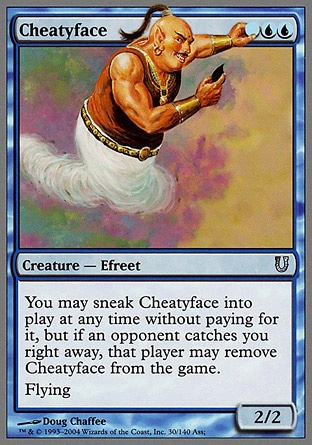
This isn’t a player who has cheated “by accident”, just because a favorful opportunity turned up. This is someone who came to your tournament “prepared” — with a marked deck, cards modified to be added to a limited pool, trained skills to perform a knavish deck shuffle etc.
We don’t want to see these blokes in our tournaments ever again. We bid them adieu as soon as we notice, investigate and disqualify them.
As a rule, the sole problem is to unmask such a player. This is a subject for another discussion.
Written by Alexey Rakhmanov and Irina Samonova, lvl2
Translated by Witas Spasovski

This kind of player brings chaos into your tournament for his own pleasure. He might be diverting himself or the spectators, he may be trolling specific people such as the tournament organizer, judges, specific players or spectators.
The biggest problem is a troll disfigured by intellect and devoid of conscience. This one will be playing on your nerves while always staying on safe land. In a way that he mocks you and doesn’t get punished, because formally he isn’t breaking the rules.